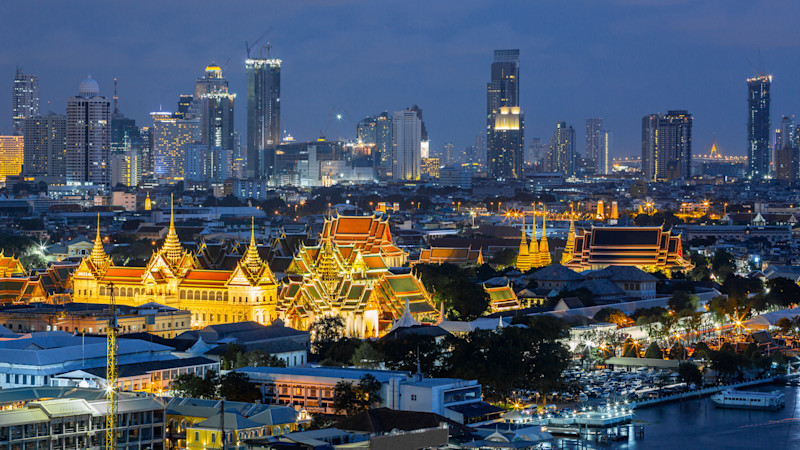In early April, President Donald Trump’s administration announced steep tariffs on Southeast Asian nations, ranging from 30% to 57%. Although these tariffs were later paused for 90 days, countries like Vietnam and Thailand, which have significant trade surpluses with the United States, may be eager to negotiate concessions concerning both the imposed tariffs and large-scale purchases.
Meanwhile, Chinese President Xi Jinping has seized the opportunity to quickly arrange a tour of Southeast Asian countries under the pretext of strengthening China's investment in the region and its political and military ties. The consensus among observers is that while the nations of the region will welcome Xi, there will be a degree of skepticism regarding whether this trip aims to find new markets for Chinese goods – thus diversifying from U.S. markets – or if it is genuinely a mission of solidarity to further develop long-term economic and geopolitical relations.
Malaysia
Driven by private consumption, investment, and export recovery, Malaysia's GDP growth forecast remains strong at 4.5% to 5.5% for fiscal year 2025. The continued strength of foreign direct investment indicates that global corporations have strong confidence in the growth of high-level manufacturing in the country.
Highlighted investments:
Last year saw major investments to bolster Malaysia’s presence as a regional tech hub: Oracle ($6.5 billion), Microsoft ($2.2 billion), and ByteDance ($2.1 billion). These headline investments have been instrumental in attracting more companies to confidently enter or expand in Malaysia.
Stellantis announced a $23 million investment in Malaysia for automotive component manufacturing.
Dexcom announced a $45 million investment to construct a facility to produce medical devices.
Pivotal Systems announced a $44 million investment to produce instrumentation for industrial control and measurement.
Unigen Corp. announced a $23 million investment to produce electrical components.
Thailand
Thailand's overall growth for fiscal year 2025 is projected to be between 2.7% and 3%. Although sentiment remains positive, uncertainty surrounding global trade policies could significantly impact Thailand, as the country heavily relies on exports for its economic growth. Approximately 18% of Thailand's total exports are directed to the U.S. market. Additionally, there are serious concerns about the growing trade deficit with China, which has exerted significant price pressures on local manufacturers.
In March, Thailand's S&P Global Manufacturing PMI was 49.9, down from 50.6 in February. This indicates a neutral outlook regarding conditions for business expansion.
Highlighted investments:
Infineon Technologies announced a $48 million investment in a facility that will produce semiconductors and related processing equipment.
Duravant announced a $24 million investment to produce industrial machinery.
Eicher Motors announced a $75 million investment to produce Royal Enfield motorcycles.
Vietnam
Economic and financial sentiment regarding Vietnam remains positive. Current consensus growth estimates for the first quarter range from 6.5% to 7.7%, with annual forecasts slightly below this range. Unless substantial tariffs are implemented by the United States, overall export growth is projected to be 12%.
Highlighted investments:
Taiwan-based Advanced Semiconductor Engineering announced a $90 million investment to build a factory to produce electrical components.
Kitz Corp. announced an investment of $109 million for a steel plant and a factory to produce general machinery.
Swagelok announced a $24 million investment to produce industrial components.
Envision Energy Singapore announced a $420 million investment to produce wind-powered energy generation systems.
For more information, please contact Mike Lauer at mlauer@AMTonline.org.






